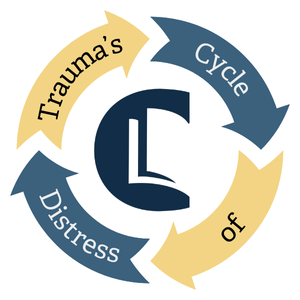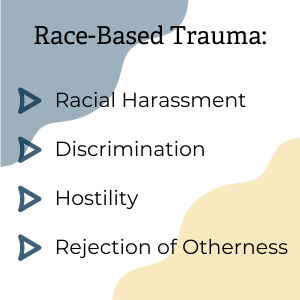Understanding Trauma: Diverse Perspectives and Definitions of Trauma
In the field of counselling and psychotherapy, defining trauma is crucial for understanding and treating those affected. Trauma encompasses a broad spectrum of experiences and reactions, making it a complex concept to grasp fully. This article explores various definitions and perspectives on trauma to provide a comprehensive understanding that can inform your practice.
Learning Outcomes
- Recognise diverse perspectives: Understand trauma through different lenses, including clinical, race-based, and relationship-oriented views.
- Develop a personal definition of trauma: Encourage self-reflection to create a personal and professional definition, considering unique and shared elements with established definitions.

Diverse Perspectives on Trauma
Clinical Definition
According to the American Psychological Association, trauma is defined as an emotional response to a terrible event such as an accident, rape, or natural disaster. Initial reactions often include shock and denial, while longer-term responses can involve unpredictable emotions, flashbacks, strained relationships, and physical symptoms like headaches or nausea. This clinical perspective provides a structured understanding of trauma’s impact on an individual’s emotional and physical well-being.
Race-Based Trauma

Race-based traumatic stress injury is another crucial aspect, highlighted by Carter (2005), which results from emotional pain following encounters with racism. This type of trauma can manifest through acts of racial harassment, discrimination, or hostility, and it underscores the rejection of otherness that clients may face.
Recognising race-based trauma is essential in appreciating the unique challenges faced by those subjected to systemic racism.
Click Here to Dowload Free Handout
Trauma in Relationships
The dynamics of trauma within interpersonal relationships are particularly significant. A widely accepted definition describes trauma as an event or series of events that are experienced as physically or emotionally harmful or life-threatening, leading to long-lasting adverse effects on an individual’s functioning and well-being. This perspective is especially pertinent in cases of domestic abuse, which can involve planned yet unpredictable harm within the context of a relationship. The complex nature of such trauma requires sensitive handling by practitioners to support recovery and resilience.
Practitioner’s View on Trauma
Bessel van der Kolk, a leading figure in trauma research, offers insight into the enduring nature of trauma. He describes being traumatised as a state where individuals organise their lives as if the trauma were still occurring, with every new experience coloured by past traumas.

This ongoing influence can reshape the nervous system, perpetuating a cycle of distress and hindered healing.
Van der Kolk’s work emphasises the need for a compassionate and nuanced approach to treatment, recognising the deep and lasting impact of trauma on the mind and body.
Free Handout Download: Understanding Trauma – Diverse Perspectives and Definitions of Trauma
Final Remarks
Understanding trauma through these varied lenses not only broadens the scope of what trauma encompasses but also aids in the development of more effective therapeutic interventions. By exploring and acknowledging the different definitions of trauma, practitioners can better support their clients in navigating their experiences and healing journeys.
References and Further Reading
American Psychological Association. (2022). Trauma and shock. [online] Available at: https://www.apa.org/topics/trauma/
Carter, R. (2005). Handbook of Racial-Cultural Psychology and Counseling. Hoboken, N.J.: Wiley.
Van Der Kolk, B. (2014). The Body Keeps the Score. Penguin Books Ltd.
Rees, S., et al. (2011). Lifetime Prevalence of Gender-Based Violence in Women and the Relationship With Mental Disorders and Psychosocial Function. Journal of American Medical Association, 306(5), 513–521.
Sharpen, J. (2022). Trauma-informed work: the key to supporting women. [online]. SafeLives. Available from: https://safelives.org.uk/practice_blog/trauma-informed-work-key-supporting-women
Trevillion, K., Oram, S., Fader, G., & Howard, L. M. (2012). Experiences of Domestic Violence and Mental Disorders: A Systematic Review and Meta-Analysis. PLoS One. Available from: https://www.ncbi.nlm.nih.gov/pmc/articles/PMC3530507/